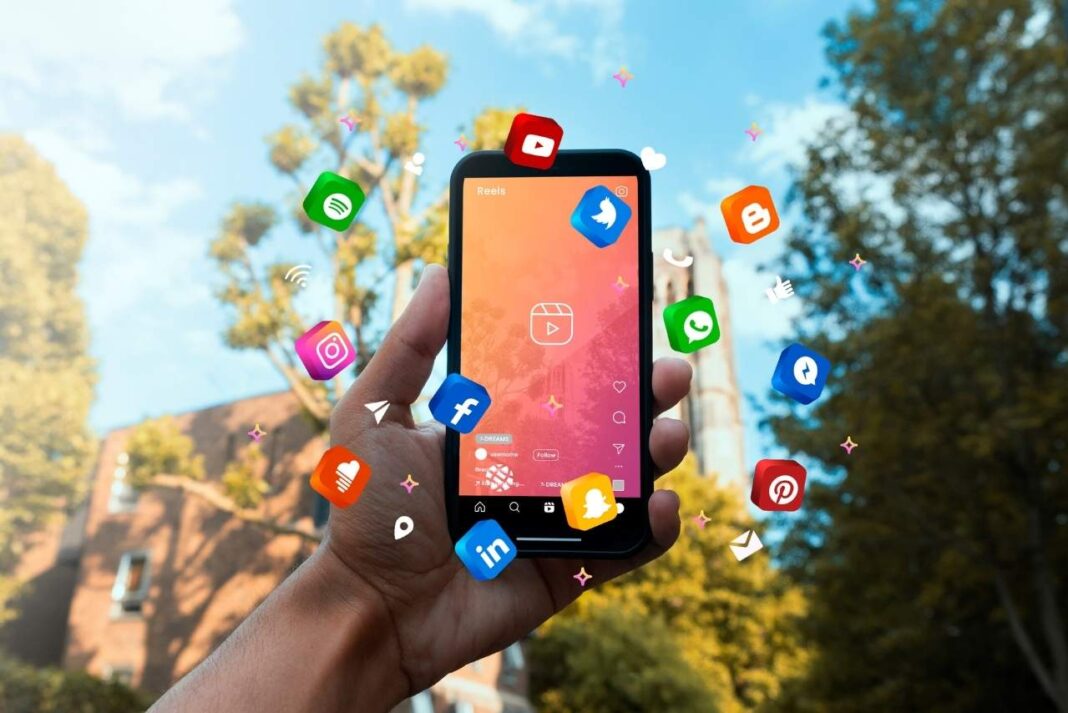One of the ever-changing inventions of the internet, social media, may not be as innocent as people believe it to be. Countless arguments can be made about social media’s negative effects on mental health. Young people and teenagers are the victims of illusions created by social media platforms and cyberbullying, which may trigger various psychological disorders and an intention to commit suicide.
Social media creates an illusion that drives young people away from reality, causing poor self-confidence and low self-esteem. We live in a society that is increasingly guided by social media trends and online culture. “Social network services (SNSs) such as Facebook, Instagram, Snapchat, and Twitter are widely the most used social media platforms for teens, and they are mostly intertwined with adolescents’ daily lives. Analysis of 19 European countries reports a survey that adolescents aged between 10–16 years old spend an average of 4 hours 22 minutes daily online. This influence of social media can hurt their psychological well-being, putting them at risk for depressive symptoms.” (D. Smahel, 2020).
These platforms consistently form a desired lifestyle and unrealistic beauty standards for men and women. It is almost impossible for teenagers who are addicted to social media apps and becoming more socially insufficient to keep themselves away from these illusions of perfection on social media. This causes negative body image issues among young people.
A body image is a personal view and feeling toward one’s body. Having a negative body image means that you are not comfortable with the way you look and you cannot command your own self-worth. These individuals, who are influenced by the illusional world of social media, can easily be affected by other people’s judgments of their appearance and they start to criticize themselves. Furthermore, they even compare their body image with celebrities and influencers. In fact, these popular images of celebrities are nothing but fake. They are filtered and edited, so they portray false beauty standards.
Because of these fake beauty standards, most women try to satisfy their self-esteem by reaching these false ideals, placing their physical and mental health at risk. As a result, spreading unrealistic beauty ideals on social media puts women at a higher risk of suffering from low self-esteem, eating disorders, depression, and many other negative effects on mental and physical well-being.
There are also growing worries about a rise in young people being bullied and experiencing homophobic and racial abuse online. Children exposed to bullying during their school years are still being bullied after school — this time online — and they become victims of cyberbullying. Due to the freedom of speech provided by social media and the ability to stay anonymous online, bullies avoid real-life obligations and do not hesitate to use verbal abuse that may harm the psychological state of young people.
Hate speech is more than just harsh words. It can be any form of expression intended to vilify, humiliate, or incite hatred against a group or class of people. Hate speech based on race, ethnicity, religion, gender, or LGBTQ identities is threatening individuals, communities, and societies. The victims of online hate speech experience negative emotional, mental, and physical outcomes, including low self-esteem, anxiety, fear for their lives, and even self-harm or suicide.
In a study done in the United Kingdom with 2,480 teenagers, information was collected from participants when they were 12–13 years old and again one year later to examine links between involvement in cyberbullying and future symptoms of depression, social anxiety, and overall mental well-being. “At baseline, 14% reported being cyber victims, 8% reported being cyberbullies, and 20% reported being cyberbully-victims in the previous year. Compared to uninvolved adolescents, cyber victims and cyberbully-victims were significantly more likely to report symptoms of depression.” (Fahy AE, et al., 2016).
As a conclusion, in the light of the evidence, the underdeveloped mental resistance of young people against cyberbullying and bullying in general can cause psychological problems that may result in suicide.
On the other hand, over the years, social media has become the predominant way of socializing for youth. These platforms connect users through images, videos, and text-based communication. User-created content on these platforms contains all types of information, including mental health resources on social media, especially regarding depression.
Social media for mental health awareness allows its depressed users to connect with other individuals experiencing similar struggles. Young adults are also using social media to stay connected with the world and to express themselves. Such ways of connecting with society can become a tool to boost one’s confidence and self-worth through likes, comments, and positive social feedback.
Thanks to these interactions, many young people and adults feel like they belong to a society, and this helps them to overcome psychological problems such as depression. Despite that, these connections among the users of social media are not tight-knit. When there is a lack of likes or complimentary comments, due to deprivation of interactions, feelings of loneliness, low self-esteem, and lack of confidence can occur.
To conclude, young people are affected by the illusions of social media, and cyberbullying creates social divisions that may never be fully repaired. These are all examples showing the dark side of social media, and everyone should be aware of it. There are government-created websites where you can make criminal complaints about cyberbullying online. So, everyone should take action about what is happening in the digital world.
References:
-
D. Smahel et al., “EU Kids Online 2020: Survey results from 19 countries,” 2020
-
Fahy, A. E., Stansfeld, S. A., Smuk, M., Smith, N. R., Cummins, S., & Clark, C. (2016). Longitudinal Associations Between Cyberbullying Involvement and Adolescent Mental Health. The Journal of Adolescent Health, 59(5), 502–509.
-
Kelly, Y., Zilanawala, A., Booker, C., & Sacker, A. (2019). Social Media Use and Adolescent Mental Health: Findings From the UK



